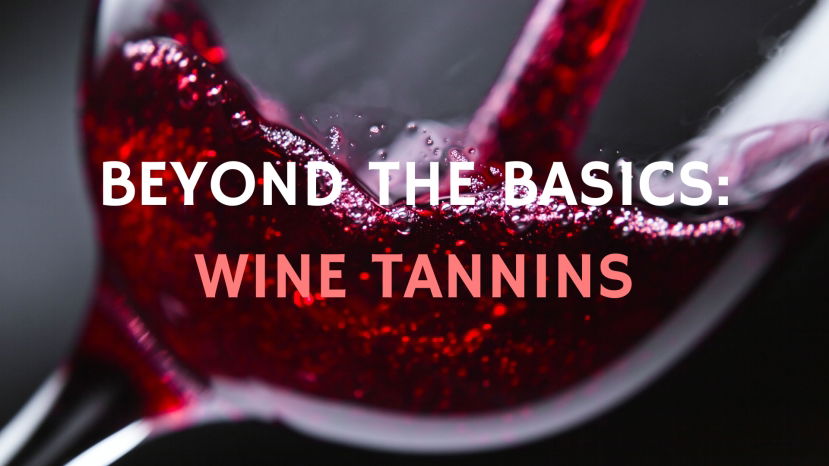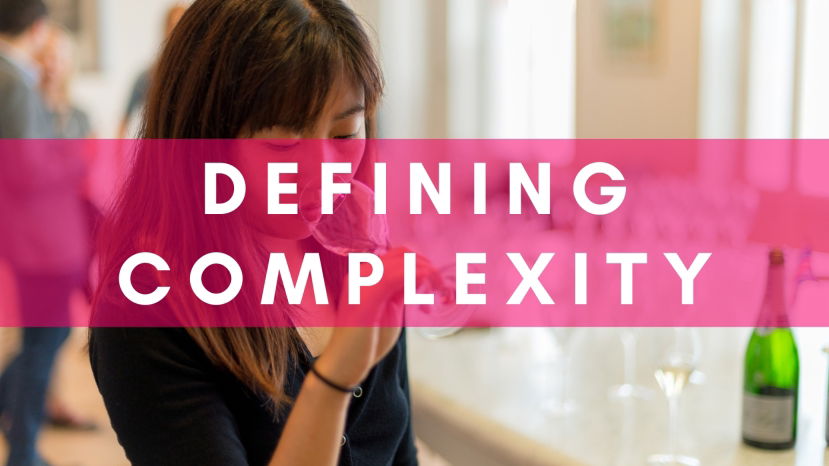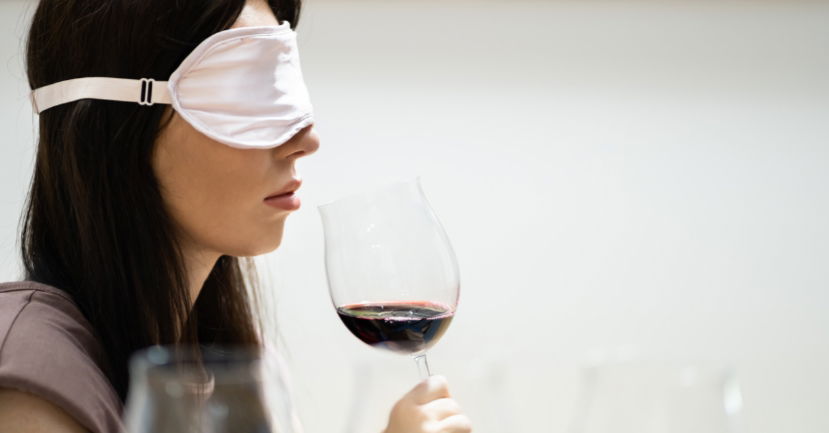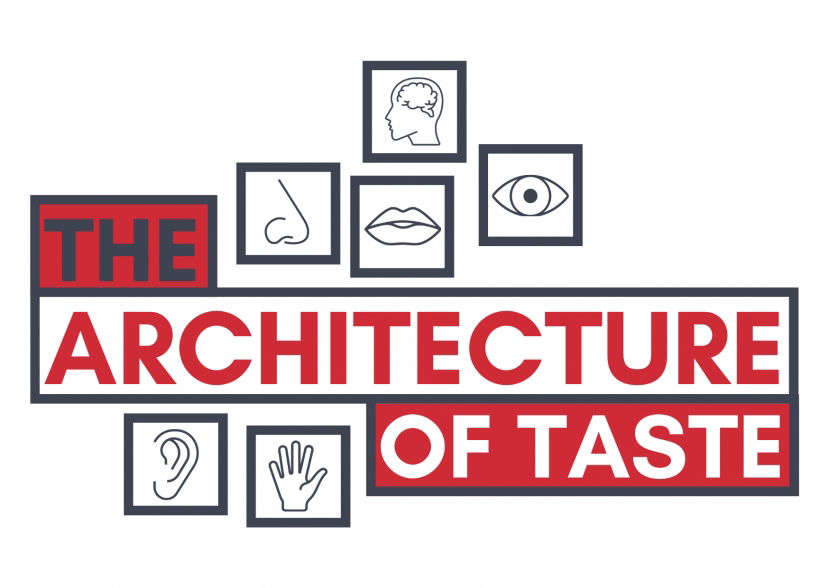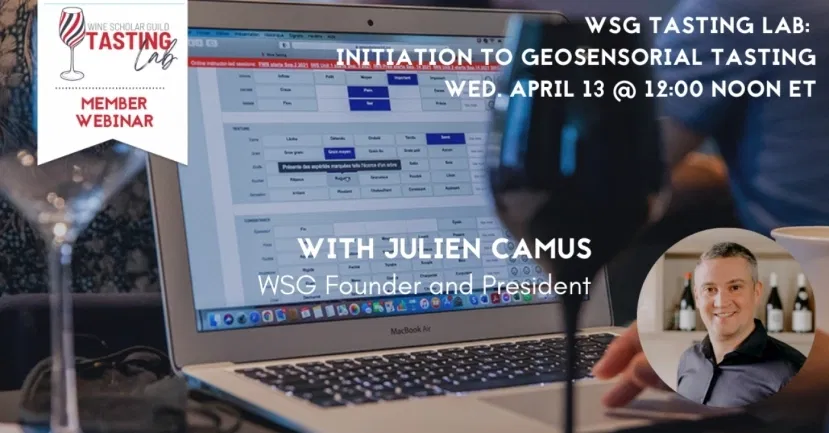BLOG
sensory perception
Summary:
This session focuses on techniques you can use to enhance your blind tasting skills. Justin will discuss some of the tips and tricks he employed to pass the Master of Wine; the most challenging wine tasting exam in the world. Justin will share some exercises that you can try at home to build your own tasting skills, as well as discussing the most effective ways of writing
Summary:
Polyphenols, in particular anthocyanins and tannins, are the main contributors to wine color and mouthfeel, and are strongly related to the wine quality evaluation.
In this WSG Live, an introduction to tannin's origin in grapes, evolution during ripening and extraction in the winemaking process will be explained. Moreover, the implication of the technological approach to vinification will be discussed, such as maceration style or the use of oak containers.
Summary:
In this video we explore the limitations of the various wine tasting grids, and Justin introduces the cross system as an alternative method. Both systems are perfectly valid, but this might appeal to you if you share the same frustrations and want to give a different method a try!
About the Speaker:
Justin Martindale is the Wine Scholar Guild Membership Manager and one of our in-house Masters of Wine. Justin passed the notoriously challenging MW
Summary:
What does complexity mean in wine?
Many people talk admiringly about complexity as a positive and desirable attribute in wine. However, it is often unclear what exactly they have in mind when using the term. In this talk, I will address various ways of defining complexity, and what experimental evidence has revealed regarding how people – both novices and experts -
Summary
In wine education and sensory science, we aim to train tasters who can exhibit consistency and accuracy in describing and quantifying aroma and taste. Any deviation from machine-like performance is seen as a flaw, and the popular press is quick to claim “wine experts can’t tell red wine from white wine!”
In
This article is the first of an upcoming series by French neuroscientist Gabriel Lepousez. Gabriel is part of the Scientific Committee formed by WSG in the context of its "Architecture of Taste Research Project". He has also presented a fascinating segment on "The Neuroscience of Wine Tasting" as part of The Science of Wine Tasting Webinar Series which will resume with new episodes in the Spring of 2022.
The wine tasting paradox
There is a real paradox in the experience of tasting a product like wine. Tasting is such a familiar, instinctive, and seemingly obvious act; something that we take for granted. At the same time, wine is a one of the most complex sensory objects that we put into our mouths.
Indeed, wine is one of the rare sensory objects of our daily life which solicits all at the same time:
Sommeliers’ brains seem to fascinate scientists. Every few years, a new study pops up where somms are subjected to MRI scans whilst they blind taste and pontificate.
The Science of Wine Tasting Course
This multi-part series is designed for food and wine professionals, wine judges, wine educators, wine and food journalists, wine students and anyone who relies on their senses to assess, evaluate, critique and/or write about wine and food.
There are four parts to this series, each with three sessions.
Part One: Neuroscience of Wine Tasting with Gabriel Lepousez
WSG is proud be the first Educational Partner of The Old Vine Conference. Read more to find out how this dynamic non-profit organization is actively creating a global network of old-vine disciples while raising awareness through education.
The Wine Scholar Guild (WSG) has initiated an ambitious undertaking aimed at developing a new way to assess wine: the Architecture of Taste Research Project (ATRP)
The Architecture of Taste Research Project aspires to find a way to empower the individual to taste and describe wine with an enriched and universal lexicon that not only dives deeper into assessing the qualities of a wine’s building blocks but also into the nature of a wine’s personality and, where relevant, its corresponding terroir signature.
Just as significantly, the research project aims to develop a new set of assessment criteria that uses the body’s own reflexive reactions as a tuning fork to capture a wine’s inherent signal—a message that incorporates not only sensory perceptions but also perceived energy, the emotions it triggers and evocative elements that, once again, might link a wine to “place.”
On April 13, WSG members, alumni and school network had the chance to discover WSG Tasting Lab®. This revolutionary way of tasting wine uses two distinct tasting grids and a lexicon created by WSG and wine industry experts that focus on a wine’s mouthfeel, texture and shape and how these elements might relate to the wines’ terroir signature.
The following two wines were tasted during this exciting webinar:
Domaine Marcel Deiss Grasberg 2016
Domaine Marcel


